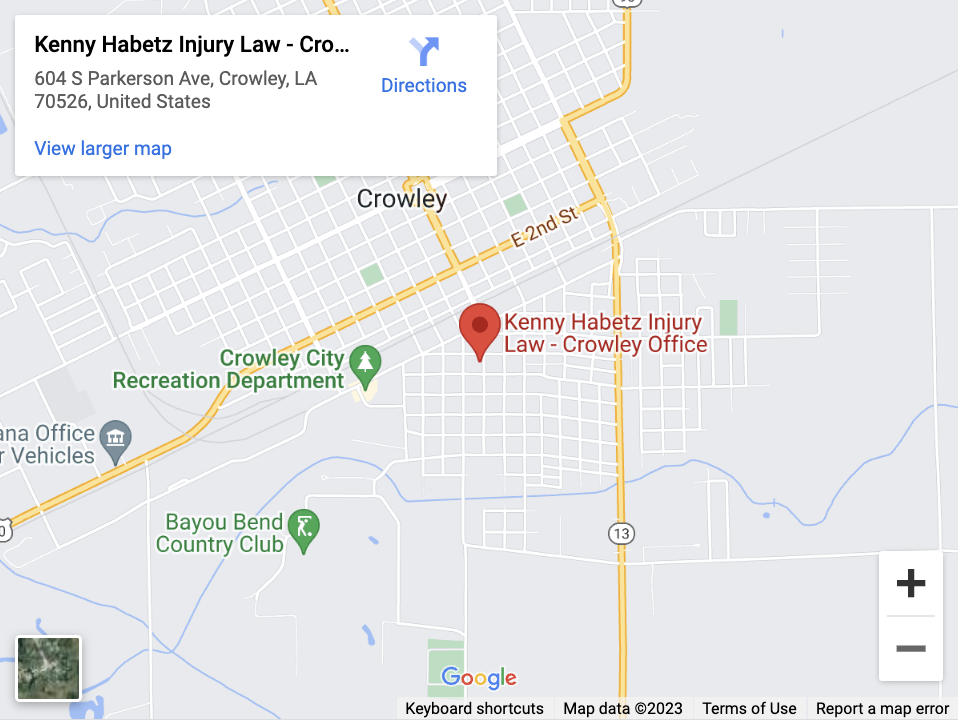In a personal injury case, ‘damages’ are any losses you suffer from a personal injury, tangible or intangible. If someone else’s misconduct caused your damages, you can usually demand compensation from them. “Failure to mitigate damages” is a defense that, if successful, can reduce the amount of damages that you qualify for.
The Burden of Proof in a Personal Injury Claim
Initially, it is up to the plaintiff (typically, the injured party) to establish liability. In other words, the plaintiff has the initial burden of proof. This burden of proof can shift during a trial or when the defendant asserts an affirmative defense.
A ‘Preponderance of the Evidence’
A preponderance of the evidence is a legal term that defines the amount of evidence you need to prove a claim. It is a fairly lenient measure–all you need to do is assemble enough evidence to prove that your claim’s likelihood of being true is at least slightly greater than 50%. Even a 51% chance will do. In other words, it’s far easier to prove a claim in a lawsuit than to prove a criminal charge against someone.
What Is an Affirmative Defense?
The person accused of injuring the plaintiff is entitled to assert a defense. There are two types of defenses–denials (the plaintiff failed to prove causation, for example) and affirmative defenses (the plaintiff failed to file their lawsuit before the statute of limitations deadline expired, for example). In an affirmative defense, the defendant asserts that “because of my affirmative defense, I am not liable even if all of the plaintiff’s claims are accurate.”
When the defendant asserts an affirmative defense, the burden of proof shifts from the plaintiff to the defendant with respect to proving the affirmative defense.
Failure to Mitigate Damages Is a Partial Defense, Not a Complete Defense
If you sue me and I assert the defense of “failure to mitigate damages”, I am not asserting a complete lack of liability for your claim. Instead, I am asserting that you did not do all you could to minimize your own damages, and that I should not have to pay for damages that you could have avoided through the use of ordinary care. Typically, these avoidable damages are economic damages rather than non-economic damages.
Examples of Failure to Mitigate Damages
You might have failed to mitigate your damages if you:
- Failed to attend physical therapy sessions as prescribed by your doctor.
- Refused to use recommended medical devices that would have accelerated your recovery
- Refused surgery that would have significantly improved your condition
- Ignored medical advice to rest and instead engaged in strenuous activities
- Delayed seeking medical treatment after the accident
- Returned to work against medical advice
- Failed to take prescribed medications
- Ignored medical advice to modify your home environment to prevent further injury
- Continued to participate in high-risk activities that your doctor warned against (such as drinking alcohol)
- Failed to follow up with necessary medical examinations to monitor your health
- Avoided using a recommended knee brace after a leg injury
- Repeatedly missed scheduled appointments with your specialist
- Refused psychological counseling after a traumatic accident
- Opted out of a recommended pain management program
- Failed to make recommended dietary changes
- Continued to operate a vehicle after medical advice to stop, thereby exacerbating a back injury
- Failed to attend scheduled surgical consultations
- Neglected to apply for disability benefits as instructed, leading to unnecessary financial strain
- Ignored advice to avoid certain physical exercises after surgery, leading to reinjury
- Failed to seek a neurological evaluation as your doctor recommended
- Declined to use assistive walking devices after an accident, leading to additional injury
- Failed to pursue alternative pain management treatments offered by your doctor
- Refused minimally invasive surgery that could have restored function to your shoulder
- Failed to maintain a follow-up care schedule with your therapist, resulting in a prolonged recovery
- Declined to enroll in rehabilitative services
None of these actions automatically mean you failed to mitigate damages. These actions matter if they likely worsened your medical condition beyond what it otherwise would have been.
Does It Matter if You’re Settling Out of Court?
You’d probably rather settle your claim through negotiation rather than trial. The opposing party probably agrees with you on that much. It’s cheaper and easier than the way. However, the defendant can assert a failure to mitigate damages defense even during negotiations, and your response will reflect the way you believe a court would react to such a claim at trial.
Why You Probably Need a Lawyer to Offer Advice on Mitigating Damages
If the defendant is asserting a ‘failure to mitigate damages’ claim against you, hiring a lawyer can be crucial. If there is enough money at stake, the opposing party will fight hard to avoid liability. A Crowley personal injury lawyer at Kenny Habetz Injury Law can help combat claims that you failed to mitigate your damages and help you pursue full compensation. Contact us at (337) 329-8883 to schedule a free consultation.


